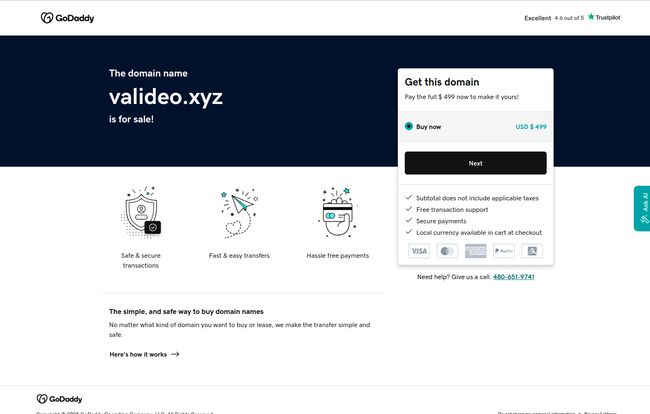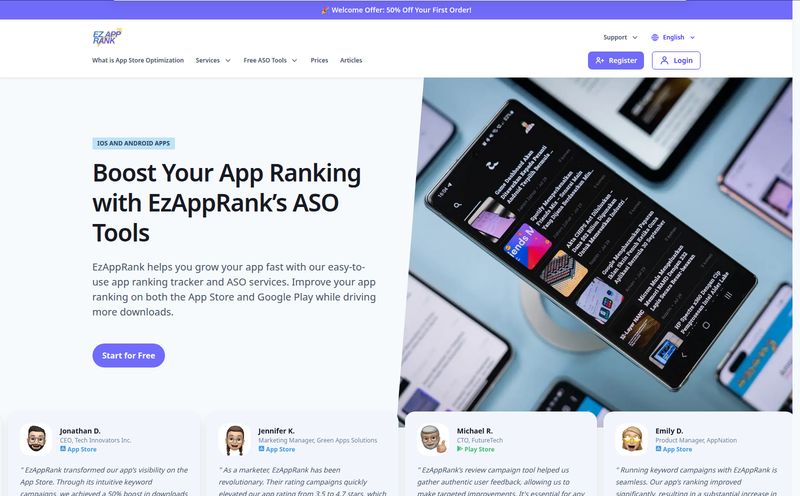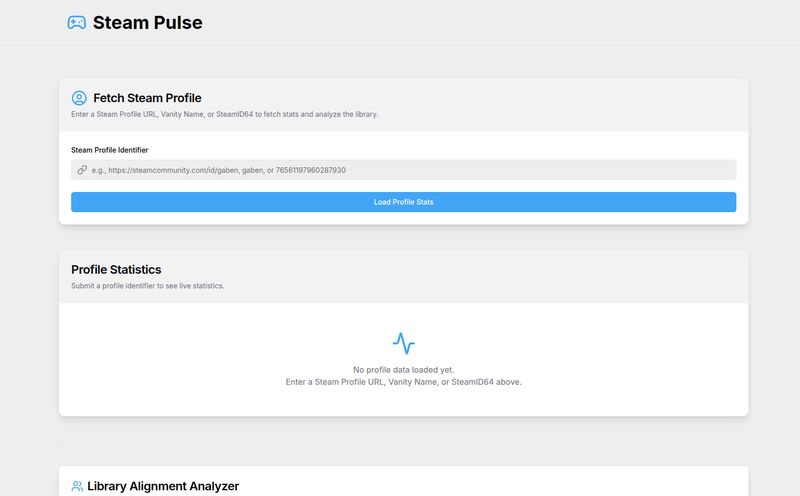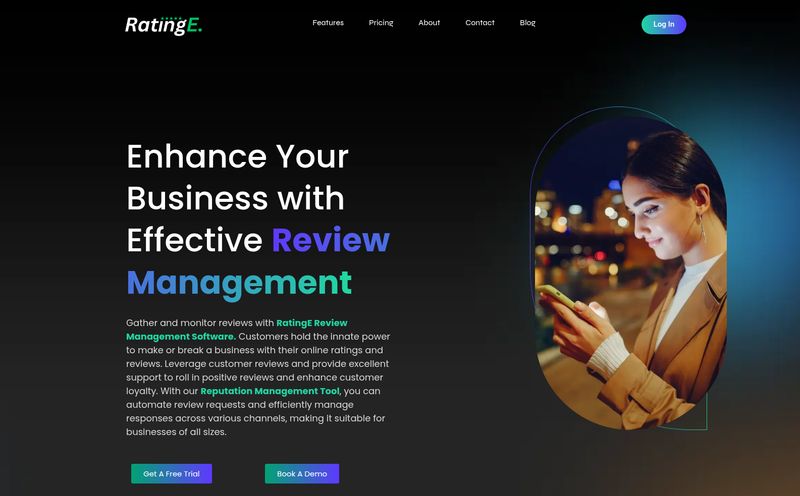We’ve all been there. It’s 11 PM, you’re scrolling through Amazon for a new coffee maker, and you’ve fallen into a rabbit hole of sponsored products, conflicting five-star reviews, and a dozen nearly identical models. Your brain starts to melt. It's the classic paradox of choice, and in the sprawling digital aisles of Amazon, it's a real problem.
For years, we SEO and traffic folks have watched the rise of AI tools promising to be our savior. A smart algorithm to cut through the noise. And recently, a tool called Valideo popped onto my radar with that exact promise. It was meant to be an AI-powered guide for making smarter, faster purchasing decisions. A cool idea, right? But as I started digging, the story got… interesting.
The Big Idea Behind Valideo
At its core, Valideo was designed to be your super-smart shopping buddy. You know, the friend you text from the store who somehow knows everything about every brand. Its whole purpose was to take the guesswork out of online shopping. Instead of you spending an hour reading 200 reviews for a blender, Valideo's AI would analyze all that data—the good, the bad, the obviously fake—and give you a personalized recommendation.
This wasn't just about finding the 'best' product, but the best product for you. It claimed to use machine learning to understand your personal needs and preferences, saving you not just time, but potentially money on a purchase you might regret later. A noble goal, for sure.
How Was It Supposed to Work?
The concept was beautifully simple. Valideo boasted a user-friendly interface where you could essentially tell it what you were looking for. The AI would then go to work, churning through product specs, customer feedback, and who knows what other data points to deliver a curated list of suggestions. Think of it as a search engine built exclusively to stop you from buying junk on Amazon.

Visit Valideo
Its main features were pretty much what you'd expect from a tool in this space:
- AI-Powered Recommendations: The secret sauce. Using algorithms to find the signal in the noise.
- Time-Saving Analysis: Condensing hours of research into a few seconds of processing.
- Cost-Effective Advice: Giving you 'expert' level advice without the 'expert' price tag.
The whole experience was meant to be seamless. You ask, it answers. Simple as that.
The Good, The Bad, and The AI
Now, no tool is perfect, especially one leaning so heavily on artificial intelligence. Based on its feature set, I can see where it would have shined and where the cracks would have likely appeared.
What I Liked About the Concept
The biggest win here is obviously the time-saving aspect. I mean, who has the time to become a temporary expert in air fryers? The idea of offloading that mental burden is fantastic. Plus, as someone who is deeply suspicious of perfectly worded five-star reviews that all seem to appear on the same day, having an AI that could potentially sniff out those patterns is a huge plus.
It was also positioned as a cost-effective alternative to, say, subscribing to a premium product review site. For the average shopper, that’s a pretty compelling argument.
Where The Cracks Might Have Shown
Here’s the thing with AI recommendations: they’re only as good as their data and their programming. There’s always the risk of algorithmic bias. Maybe the AI over-values certain specs and ignores others that a human would catch. I've seen it happen—it's like when a streaming service recommends a terrible movie just because it stars an actor you like, completely ignoring the fact that the script is a disaster.
There's also the nuance problem. An AI might not understand that while you want a "quiet" vacuum, you're willing to tolerate a little more noise for way better suction. It struggles with those human trade-offs. So yeah, while promising, you’d still need to take its advice with a grain of salt.
Let's Talk About The Price
This is one area where I think Valideo had a real shot. The pricing structure was incredibly reasonable. You had two tiers:
| Plan | Price | Features |
|---|---|---|
| Free Plan | $0 | 5 requests/suggestions per month. |
| Pro Plan | $5 / Month | 100 requests, save requests, and a pros/cons list for suggestions. |
A free plan to get your feet wet is always a smart move. And the Pro plan? At five dollars a month, it's an absolute steal. That's less than one of those fancy coffees everyone talks about. For anyone who makes several considered purchases a month, that could easily pay for itself by preventing just one bad buy. The pricing was not the issue here.
So, What Happened to Valideo? The .XYZ Mystery
This is where our story takes a turn. As I prepared to test the tool, I navigated to its home on the web. And what did I find? Not a sleek landing page, but a GoDaddy "For Sale" sign. The domain, valideo.xyz, is currently listed for a cool $499.
Oof. That’s the digital equivalent of showing up to a new restaurant for your reservation and finding the windows boarded up.
What does this mean? Well, it's the startup circle of life. An idea is born, a product is built, but for one reason or another, it doesn't make it. Maybe the user acquisition costs were too high. Perhaps it was a solo founder who got a job offer they couldn't refuse. Or maybe the tech just wasn't reliable enough to get people to pay that $5 a month. The market for AI tools is incredibly crowded right now, and it's tough to stand out.
Whatever the reason, Valideo appears to be a ghost. A great idea with solid pricing and a clear purpose that, for now, exists only as a parked domain and a few bits of data on the web.
The Ghost of Shopping AI Past
Valideo's story is a cautionary tale. It serves as a reminder that even a fantastic idea with a user-friendly approach isn't a guaranteed success. The path from concept to a sustainable business is littered with fallen startups. It had all the right ingredients: it solved a common problem, had an attractive price point, and rode the wave of the AI trend.
But at the end of the day, execution and market traction are everything. While we may never know the full story behind its disappearance, Valideo stands as a fascinating case study of a promising tool that vanished. It leaves you wondering what could have been, and keeps you cautiously optimistic for the next AI-powered shopping buddy that will inevitably try to take its place.
Frequently Asked Questions about Valideo
- What exactly was Valideo?
- Valideo was an AI-powered platform designed to provide personalized product recommendations for shoppers on Amazon. It aimed to save users time and money by analyzing product data and reviews to suggest the best items based on individual needs.
- How did Valideo use AI?
- It used advanced algorithms and machine learning to process vast amounts of information, including customer reviews, product specifications, and user preferences, to generate tailored product suggestions.
- Was Valideo free to use?
- Yes, it offered a free plan with up to 5 requests per month. There was also a Pro plan for $5/month that included 100 requests, the ability to save requests, and detailed pros and cons lists.
- Is Valideo still available?
- No. As of late 2024, the domain `valideo.xyz` is listed for sale on GoDaddy, which strongly indicates that the platform is no longer active or available for public use.
- Are there good alternatives to Valideo?
- Yes, the space is full of options! Browser extensions like Fakespot (now part of Mozilla) analyze review quality, while others like The Camelizer track prices. Several new AI shopping assistants are also integrated directly into browsers like Edge and Arc.
Reference and Sources
Information regarding the domain status was observed directly on the platform's registrar page:
- GoDaddy Domain Listing for `valideo.xyz`



